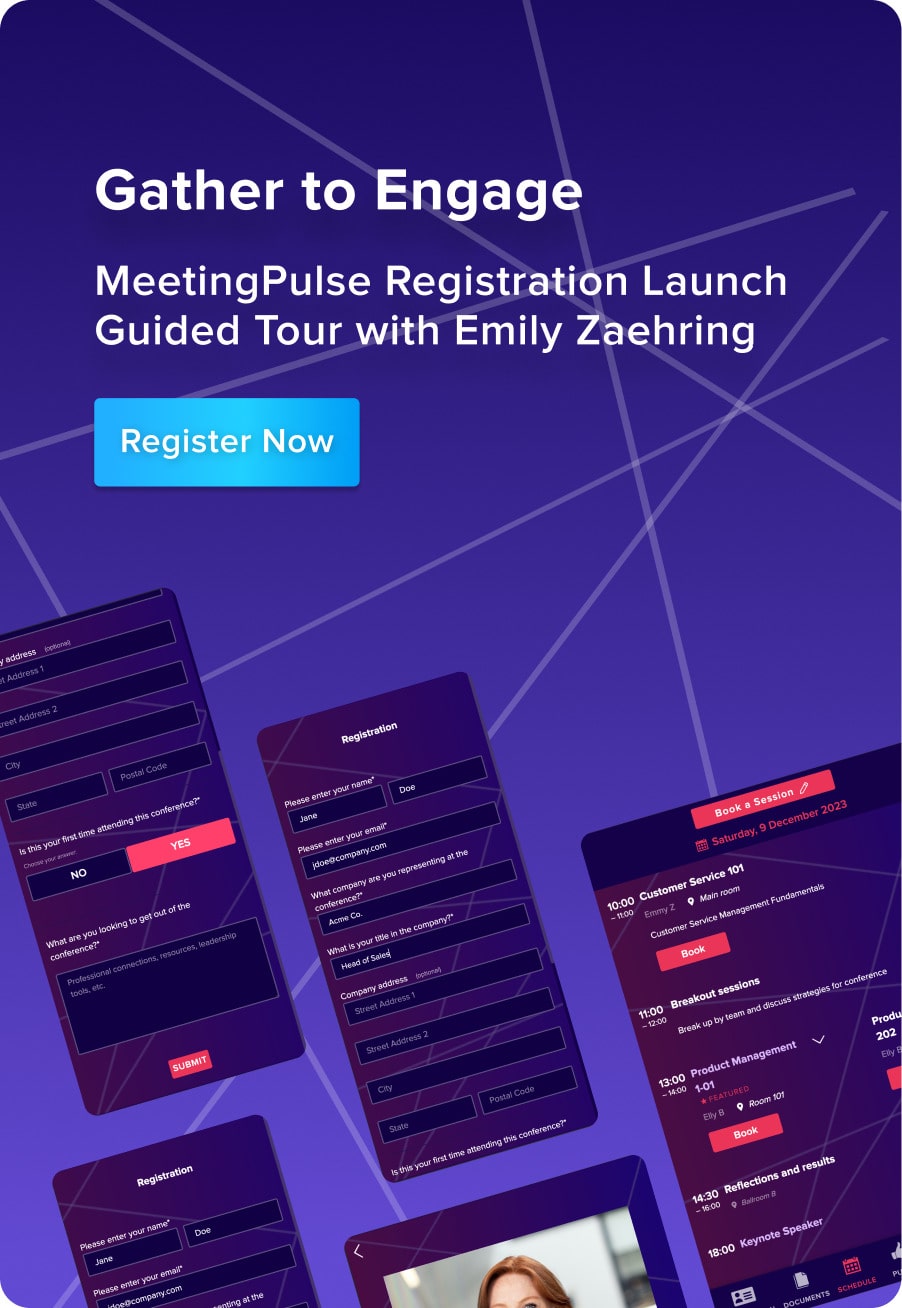What is a roundtable discussion?
A roundtable discussion can be the highlight of any conference. It’s an opportunity for people to interact with industry leaders around interesting questions. It can be inspiring and informative. But it must be done well. If not, your roundtable of people, all considered experts in a field, can become antagonistic, chaotic, or just dull.
Virtual roundtables are cost-effective, excellent for building relationships with company leadership, and may add significant value for your company.
Here are 8 top tips for a successful online roundtable discussion.
1 Clear Purpose
To begin, the purpose or goals of the roundtable should be clear. Determine what you want the audience to get out of the discussion — establishing your why early on will provide the framework for a smooth-running event. Clear meeting objectives will keep the discussion from being too broad — the more precise, the more successful.
To develop a clear purpose and topic for your roundtable, consider a few questions:
- Are there emerging problems as a result of recent events?
- Is your industry about to face a significant change soon?
- What will you do with the information from the discussion?
These will help you formulate a specific purpose for your roundtable.
Related: How to Run an Online Management Meeting
2 Choose the topic
The discussion topic should be chosen with care, as it will determine the number of people who want to attend your event. The topic should be relevant and compelling within your industry. And it should add significant value to your audience.
- Are there any pressing questions facing your industry currently?
- Do different but equally compelling sides of the issue exist?
- How does the topic reflect on your brand?
If nailing down a provocative topic is proving too challenging, it is an excellent idea to poll your potential audience. This will engage them early and increase the chances they attend your roundtable. Keep in mind:
- Audience interests must be paramount in your decision-making.
- The topic needs to align with what your company provides.
- Participants in the roundtable discussion should be subject matter experts.
3 Consider the size of your roundtable
Depending on the discussion, carefully consider how many people you want at your roundtable. Too many people and no one feels heard — too few, and someone monopolizes the conversation.
As you consider quantity, remember quality. You want people who other people want to hear. The company decision-makers and industry leaders are the people you want, but they can be tough to reach. They tend to be busier than most people, and you have to be dangling a big carrot for them to come along.
To get the best people, you’ll have to generate a significant value for them. People at this level are interested in the opportunity to brainstorm with others on their level. This could be your way to get the right people around the table.

4 Plan the room
Depending upon the number of participants, consider putting people into smaller virtual rooms for discussion. The ideal time for a roundtable is 30 – 60 minutes. For more extended periods, the groups may be larger. The shorter the time allotment, the fewer people there should be in each group.
The ideal number of participants around a roundtable is 4 – 6 professionals. They should have enough of a mix of backgrounds to be complementary and bring various points of view to the discussion.
5 Comprehensive Agenda
Every participant should be given a copy of your prepared agenda. It will ensure they stay focused and know what and when things will happen. Your agenda should include the following:
- The topic clearly stated.
- The purpose of the roundtable.
- The primary discussion points.
- The roundtable timeline — start, end, and break times.
- Ground rules: Avoid undesirable behavior and establish a code of conduct.
6 Choose a capable moderator
The moderator is vital to the smooth running of your roundtable. They should be confident enough to rein in the conversation and keep the participants on topic. A good moderator will also keep the discussion moving at a good pace — not too quickly, but not too slowly either.
The role of the moderator will entail the following:
- Explaining how the discussion will go.
- Selecting the best questions from the online audience.
- Removing inappropriate questions or comments from public display.
- Being knowledgeable enough to ask questions that move along sluggish discussion and stimulate fresh ideas.
- Keeping track of time.
How to find a moderator:
- Find potential candidates by referral from peers.
- Look for other successful events to find “proven entities.”
- Meet your chosen moderator for a brief interview, so you get an authentic feel or their personality, etc.
- If you decide to hire someone who isn’t experienced, ensure they understand the purpose and objectives well, and know enough about the topic.
Create a Brief for the Moderator
It’s essential that the moderator is crystal clear about the roundtable’s objectives and understands how things must flow. To that end, a brief may be created for the moderator explaining everything in glowing detail. It’s more important that they know what must happen than for anyone else.
They set the pace and guide the discussion. If things go off the rails, it’s the moderator that will bring them back. The moderator will protect your investment and ensure that your company is seen in the best light possible.
7 Make your roundtable engaging

To make your roundtable an excellent experience for your attendees, it must be intriguing and engaging. Here are a few things you can do to ensure your attendees rave about it later and are eager to attend your next one.
- Pre-event polling to discover why people are attending and what they hope to learn from your roundtable.
- In-event polling to ensure attendees are getting out of the roundtable all they expected.
- A video at the start of the discussion can facilitate early interaction.
- Interactive Q&A sessions with the popular Ask Me Anything is sure to be exciting. The questions will range from silly to challenging, but it will all be thrilling for your audience!
Using a tool like MeetingPulse will help you to engage with the audience and get questions in real-time.
Related: Building a Feedback Culture
8 Follow-Up with feedback
At the end of the roundtable discussion, collect feedback. This information will be useful in making improvements from one program to the next. You will be able to enhance your attendees’ experience and add even more value to the next roundtable. You may collect feedback through surveys or polls. Both of which MeetingPulse can provide.
Conclusion
Roundtable discussions, done well, are stimulating for any industry group. They have the potential to stir the pot and cause new ideas and outstanding solutions to rise to the surface. Just follow our tips and gain all of the value of hosting a successful online roundtable discussion.






